32 Best Foods for Your Liver
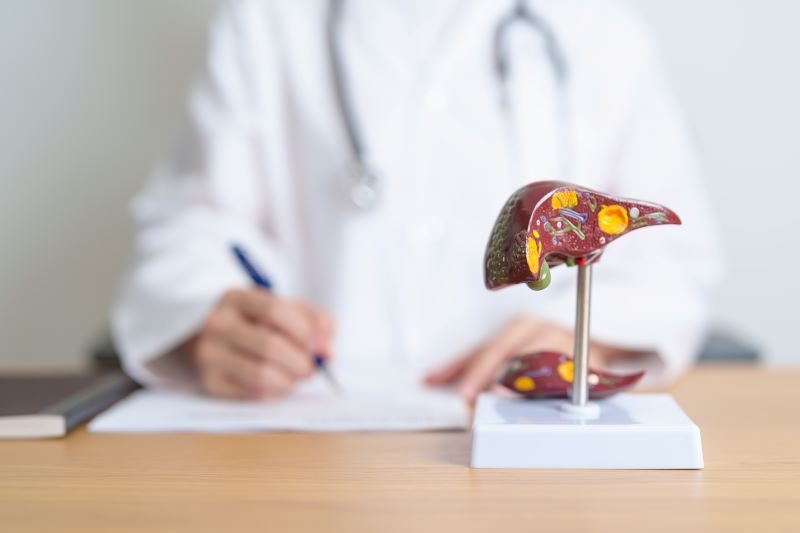
One of the most important organs in the body, the liver, produces chemicals required for digestion and overall health, manages nutrients, and detoxifies toxins. Therefore, it is important to take care of it because it carries out the necessary tasks for your body to function correctly.
This article will discuss some of the best foods for liver health, such as non-vegetarian options like salmon, fruits like apples or lemons, vegetables like kale or broccoli, and dairy products like milk or cheese (without fat). We will also discuss which kinds to avoid and provide advice on maintaining a diet for liver health.

Table of Contents

What’s the Main Function of the Liver in Our Body?
The liver filters blood and removes dangerous toxins, making it an essential body part. It aids in nutrition and metabolism and produces bile, which is necessary for digestion. This organ also stores vital vitamins and minerals and regulates blood glucose levels.
Besides, it aids blood clotting while synthesising proteins necessary for good health. Therefore, maintaining and improving the liver's diet and health become essential to getting the most out of your system.
32 Best Foods for Liver
Since the liver is involved in digestion and detoxification, it is critical to general health. You can keep your liver functioning at its best by feeding it foods high in nutrients. This article examines the top 32 foods for liver health and provides various dietary options.
Below, you will find a comprehensive list of the 32 best foods for the liver, categorised into different types and theri nutrient content per 100g for your convenience. These foods offer key nutrients to support liver health and should be incorporated into a balanced diet.
List of Vegetables for Liver
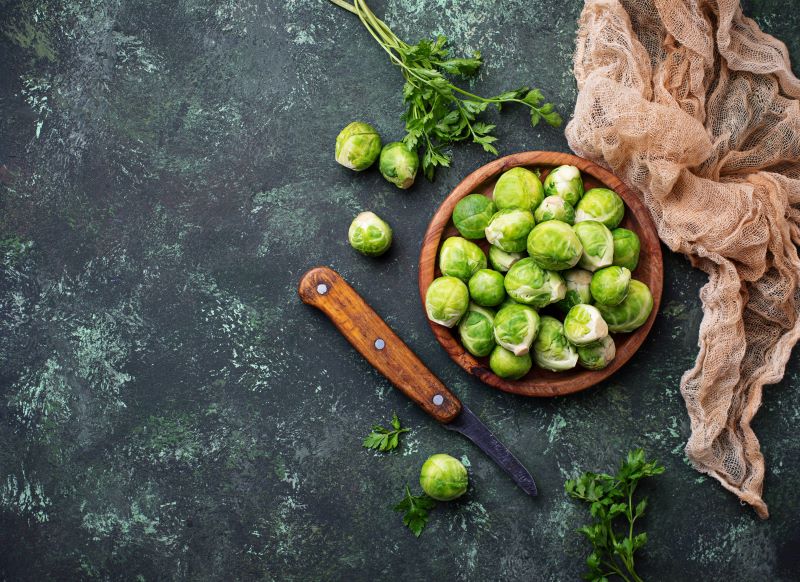
Essential nutrients found in vegetables, such as antioxidants and fibre, support liver health and help with detoxification procedures. Leafy and cruciferous vegetables are especially helpful for optimum liver function.
SNo. |
Vegetables | Description | Nutrient Value per 100 g |
| 1 | Broccoli | Broccoli contains glucosinolates, which help activate detoxification enzymes and reduce toxins. It's rich in fibre and antioxidants. Regular consumption can support liver health. | Vitamin C: 89.2 mg Fibre: 2.6 g |
| 2 | Brussels Sprouts | Rich in glucosinolates and fibre, Brussels sprouts support liver detoxification. They contain compounds that help break down carcinogens. They also provide essential vitamins and minerals. | Vitamin C: 85 mg Fibre: 3.8 g |
| 3 | Mustard Greens | Mustard greens are packed with fibre and antioxidants that promote liver detoxification. Their high vitamin K content also supports healthy liver function. | Vitamin K: 257.5 mcg Fibre: 2.9 g |
| 4 | Spinach | Spinach contains powerful antioxidants and is rich in iron, promoting liver health. Its chlorophyll content helps detoxify the body. | Iron: 2.7 mg Vitamin C: 28.1 mg |
| 5 | Kale | Kale is loaded with antioxidants and fibre, aiding liver detoxification. It's a rich source of vitamins A, C, and K. | Vitamin C: 41 mg Vitamin K: 389.6 mg |
| 6 | Cabbage | Cabbage is a cruciferous vegetable with liver-supporting properties. It's high in fibre and antioxidants, aiding in detoxification. | Vitamin C: 36.6 mg Fibre: 2.5 g |
List of Fruits and Juices for Liver
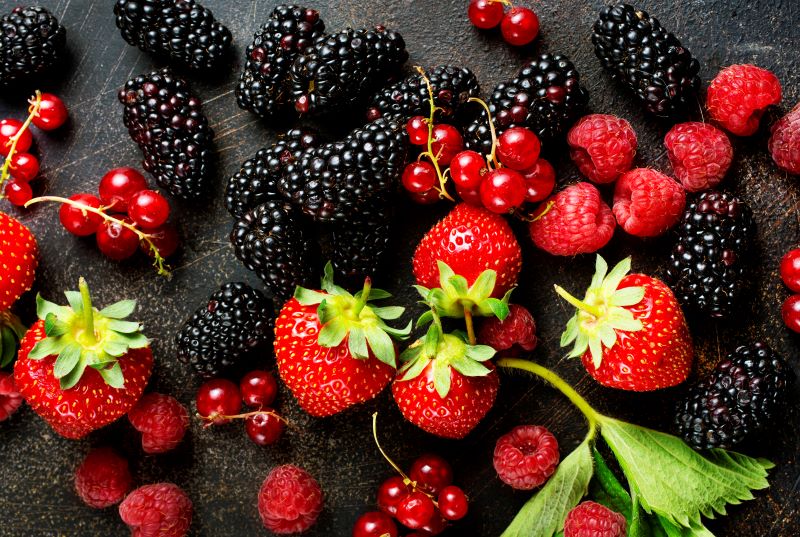
Fruits and juices offer vital antioxidants and vitamins that protect the liver from damage and inflammation. They help support detoxification and overall liver function.
SNo. |
Fruits and Juices | Description | Nutrient Value per 100 g |
| 7 | Grapefruit | Grapefruit contains the antioxidants naringenin and naringin that protect the liver. It can reduce inflammation and boost liver enzymes. | Vitamin C: 31.2 mg Fibre: 1.6 g |
| 8 | Berries | Berries such as blueberries and cranberries are rich in polyphenols, which protect the liver from damage. They offer anti-inflammatory benefits as well. | Vitamin C: 9.7 mg Fibre: 2.4 g |
| 9 | Prickly Pear | Prickly pear contains antioxidants that help reduce oxidative stress in the liver. It can also help with hangover symptoms by lowering inflammation. | Vitamin C: 18 mg Fibre: 3.7 g |
| 10 | Lemons | Lemons are rich in vitamin C, which promotes detoxification and liver health. Their high antioxidant content supports the body's defence system. | Vitamin C: 53 mg Fibre: 2.8 g |
| 11 | Apples | Apples provide soluble fibre, aiding digestion and liver detoxification. Their polyphenols also support overall liver health. | Fibre: 2.4 g Vitamin C: 4.6 mg |
| 12 | Oranges | Oranges are rich in vitamin C and antioxidants, supporting liver function and overall health. They can help protect liver cells from damage. | Vitamin C: 53.2 mg Fibre: 2.4 g |
| 13 | Grapes | Grapes, especially dark varieties, contain resveratrol, an antioxidant that reduces inflammation and promotes liver health. | Fibre: 0.9 g Vitamin C: 3.2 mg |
| 14 | Beetroot Juice | Beetroot juice contains nitrates and betalains, which support liver function and reduce oxidative stress. | Fibre: 0.8 g Vitamin C: 4.9 mg |
List of Dairy Products and Nuts for Liver
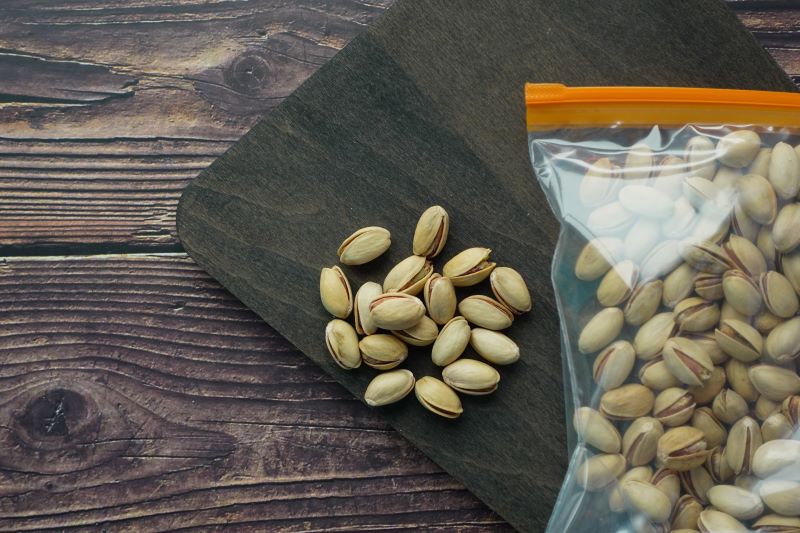
Dairy products and nuts provide high-quality protein, healthy fats, and antioxidants that promote liver health. They support liver repair and protect against oxidative stress.
SNo. |
Dairy Products and Nuts | Description | Nutrient Value per 100 g |
| 15 | Greek Yoghurt | Greek yoghurt is rich in probiotics, which support gut health and, in turn, liver function. It also provides protein and calcium. | Protein: 10 g Calcium: 111 mg |
| 16. | Cottage Cheese | Cottage cheese is a good source of protein and contains essential amino acids that support liver repair and regeneration. | Protein: 11 g Calcium: 83 mg |
| 17 | Almonds | Almonds are high in vitamin E and healthy fats, which promote liver health and reduce oxidative stress. | Fibre: 12.5 g Vitamin E: 26 mg |
| 18 | Walnuts | Walnuts contain omega-3 fatty acids and antioxidants that help reduce inflammation and support liver health. | Protein: 15.2 g Fibre: 6.7 g |
| 19 | Pistachios | Pistachios are rich in healthy fats and antioxidants that support liver function. They may help lower cholesterol levels. | Protein: 20.6 g Fibre: 10.6 g |
List of Vegetarian Food for Liver
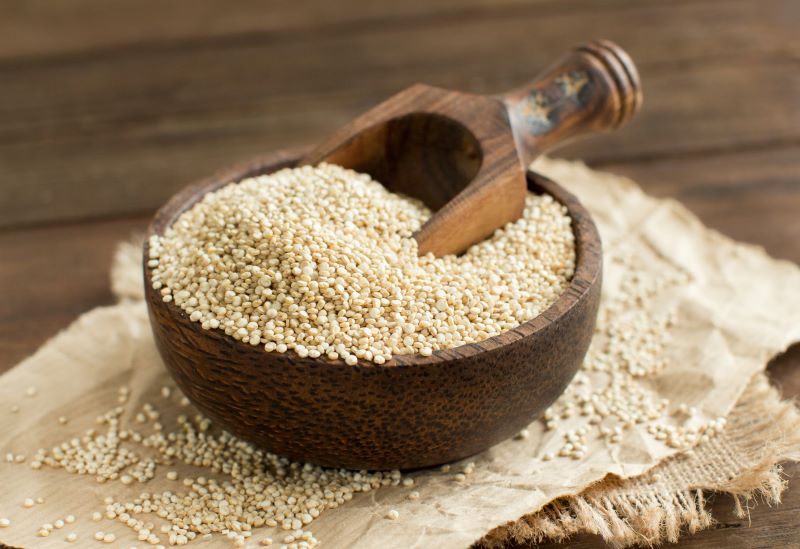
Vegetarian foods offer plant-based protein, fibre, and essential nutrients for liver health. They can aid digestion, support liver function, and enhance detoxification.
SNo. |
Food | Description | Nutrient Value per 100 g |
| 20 | Lentils | Lentils are a great source of plant-based protein, fibre, and iron, supporting liver health. They can also help stabilise blood sugar levels. | Fibre: 7.9 g Protein: 9 g |
| 21 | Tofu | Tofu is a versatile source of protein, low in calories, and rich in essential amino acids. It promotes liver health and aids in detoxification. | Protein: 8 g Iron: 1.58 mg |
| 22 | Quinoa | Quinoa is a whole grain rich in protein and fibre, supporting liver health and aiding in digestion. | Protein: 4.4 g Fibre: 2.8 g |
| 23 | Chickpeas | Chickpeas provide plant-based protein and fibre, aiding digestion and liver function. They also offer essential vitamins and minerals. | Fibre: 7.6 g Protein: 8.9 g |
| 24 | Barley | Barley is a whole grain rich in fibre, vitamins, and minerals. It supports liver function and aids in digestion. | Fibre: 15.6 g Protein: 2.3 g |
List of Non-Vegetarian Food for Liver
Non-vegetarian foods provide high-quality protein and essential nutrients to support liver function. They can aid in liver repair and offer essential amino acids for overall health.
SNo. |
Food | Description | Nutrient Value per 100 g |
| 25 | Salmon | Salmon is rich in omega-3 fatty acids, supporting liver health and reducing inflammation. It's also a good source of protein. | Protein: 20.42 g Omega-3: 1.5 g |
| 26 | Sardines | Sardines contain high levels of omega-3 fatty acids and vitamins D and B12, supporting liver function and overall health. | Protein: 25.2 g Omega-3: 1.5 g |
| 27 | Chicken Breast | Chicken breast is a lean source of protein, supporting liver repair and overall health. It's also low in fat. | Protein: 31 g Fat: 3.6 g |
| 28 | Turkey Breast | Turkey breast offers a lean source of protein and essential amino acids, supporting liver repair and function. | Protein: 30.5 g Fat: 1.2 g |
| 29 | Eggs | Eggs provide high-quality protein and essential nutrients, promoting liver repair and health. They contain choline, which is important for liver function. | Protein: 12.4 g Choline: 251 mg |
| 30 | Mutton | Mutton is a good source of high-quality protein and iron, supporting liver repair and overall health. It should be consumed in moderation due to its higher fat content. | Protein: 25.4 g Iron: 2.7 mg |
| 31 | Goat Liver | Goat liver is rich in iron, vitamins A and B12, and essential minerals. It supports liver health and can help prevent anaemia. | Protein: 20.4 g Iron: 6.9 mg |
| 32 | Prawns | Prawns are low in calories and provide protein and selenium, which support liver function. Their omega-3 fatty acids also offer anti-inflammatory benefits. | Protein: 24 gxx Omega-3: 0.3 g |
These food options can provide essential nutrients that support liver health. Including them in your diet can contribute to maintaining optimal liver function and overall well-being.
How to Maintain a Healthy Food Diet for Your Liver?
To keep the liver healthy, pay attention to balanced meals with necessary nutrients and less saturated fats, sugar, or salt. Fresh fruits, vegetables, lean proteins, and whole grains should be consumed for a better liver health.
- Consume a Wide Range of Nutrient-Dense Foods: Give priority to complex carbohydrates. Also include lean meats like chicken breast without skin; plenty of fruits and vegetables should be eaten, too.
- Cut Down on Unhealthy Fats and Sugars: Reduce intake of saturated fats found in animal products, avoid trans-fats completely, and limit added sugars, which increase the risk of fatty infiltration within hepatocytes, leading to steatosis (fatty liver).
- Drink Enough Water: Hydration is key to maintaining proper functioning levels within any organ system, which involves many detoxification processes. Drink at least eight glasses of water daily, especially during summer.
- Control Alcohol Consumption: It is important to moderate your drinking habits since heavy drinking damages liver cells, which may eventually lead to a condition called cirrhosis.
- Include Antioxidant-Rich Foods: These types help protect our bodies against free radicals that may harm different organs, including this one, thus preventing conditions like cancer, among others.
Stay on Track with These Health Tools
10 Food Items to Avoid for a Healthy Liver

A healthy liver is essential for overall well-being, so it's important to avoid certain foods that can stress or harm this vital organ. Limiting your intake of these foods can help prevent liver damage and support its optimal function. Here's a list of 10 food items to avoid for a healthy liver:
SNo. |
Food Item | Reasons to Avoid |
| 1 | Alcohol | Alcohol is a major cause of liver damage and can lead to inflammation, fatty liver disease, and cirrhosis. |
| 2 | Sugary Beverages | Sugary drinks can contribute to fatty liver disease due to high levels of fructose, a sugar that can harm the liver. |
| 3 | Fried Foods | High in unhealthy fats, fried foods can contribute to inflammation and fatty liver disease. |
| 4 | Processed Meats | Processed meats often contain high levels of salt and preservatives, which can stress the liver. |
| 5 | Packaged Snacks | Many packaged snacks are high in unhealthy fats, salt, and sugar, all of which can harm the liver. |
| 6 | Refined Grains | Refined grains, like white bread and pasta, are low in fibre and high in sugar, affecting liver health. |
| 7 | High-Salt Foods | Consuming too much salt can lead to water retention and increased strain on the liver. |
| 8 | Full-Fat Dairy | Full-fat dairy products can contribute to fatty liver disease due to their high saturated fat content. |
| 9 | Artificial Sweeteners | Artificial sweeteners can disrupt liver metabolism and increase the risk of liver damage. |
| 10 | High-Fat Red Meat | High-fat red meat can contribute to fatty liver disease due to its high saturated fat content. |
What is the Impact of Bad Food Choices on Your Liver?
Your liver could suffer a lot and stop functioning altogether if you make the wrong food choices. The liver may become inflamed or damaged by eating unhealthy meals, which can cause many diseases in this organ. These are some of the impacts that a bad diet has on your liver:
- Fatty Liver Disease: Non-alcoholic fatty liver disease (NAFLD) is caused when too much fat builds up in our livers due to consuming an excess amount of unhealthy fats and sugars.
- Inflammation: Inflammatory responses within hepatic tissues may occur because people eat poorly, triggering even more dangerous conditions like viral hepatitis.
- Toxic Overload: Too many artificial ingredients, preservatives, or additives in our system overwhelm the ability of this vital organ to detoxify itself, resulting in toxicity overload for the liver.
- Liver Fibrosis and Cirrhosis: Chronic inflammation coupled with fat build-up leads to liver fibrosis, progressing further until cirrhosis. The person’s body becomes highly dysfunctional since this gland filters toxins from the blood.
- Increased Risk of Liver Cancer: Consistent inflammation and unhealthy eating habits can increase the risk of developing malignant neoplasms from hepatocyte cells.
Taking care of your liver is essential for maintaining overall health and well-being. You can support optimal function and longevity by eating various nutrient-rich foods for the liver and avoiding harmful items. For health benefits, remember to eat abundant fruits, vegetables, dairy products, nuts, and lean proteins.
Be cautious when choosing foods that could harm your liver, such as processed foods, sugary drinks, and alcohol. Healthy eating practices can aid in liver disease prevention and aid in the detoxification process.
Protect What Matters - Explore Other Insurance Options














